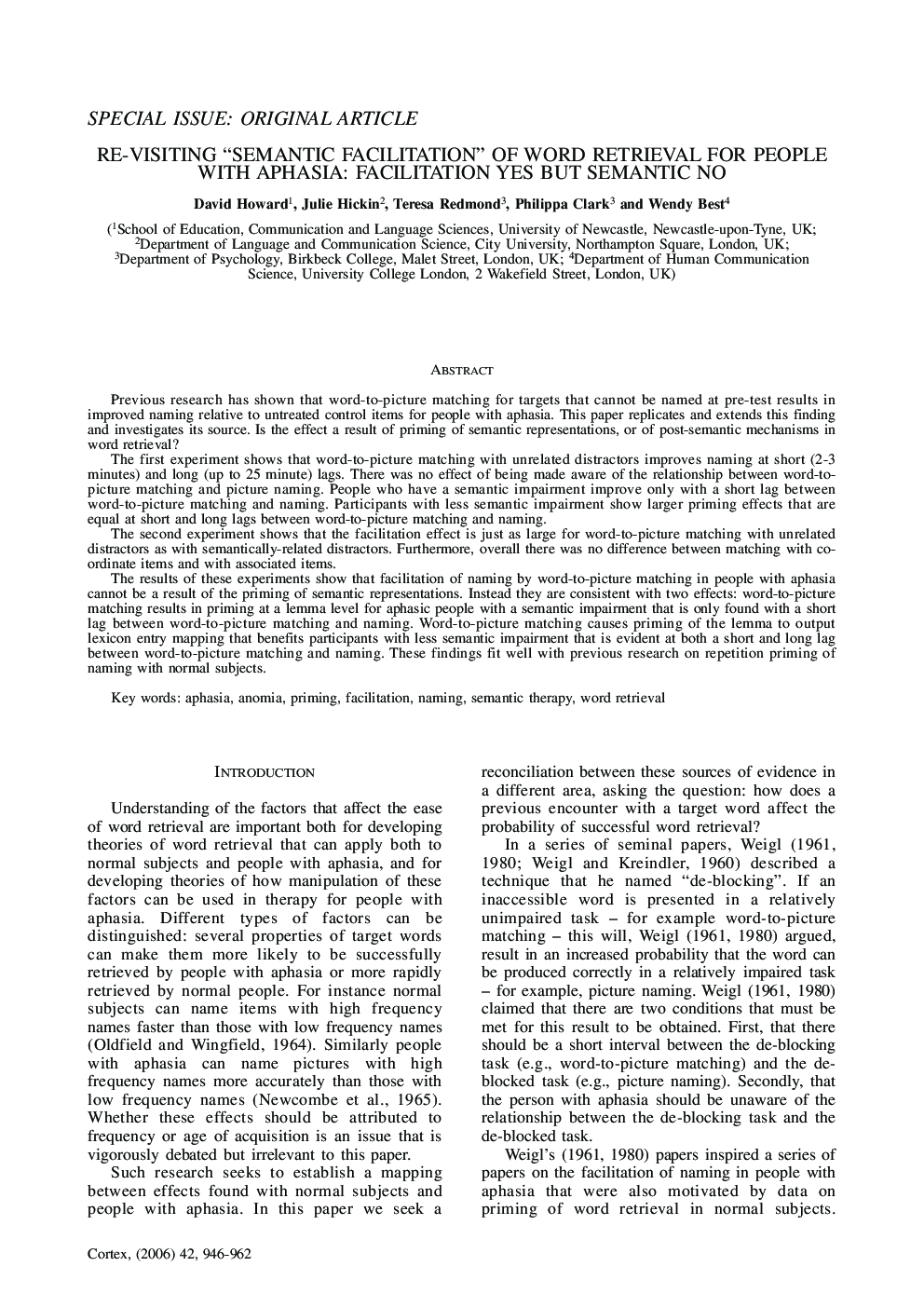| Article ID | Journal | Published Year | Pages | File Type |
|---|---|---|---|---|
| 943005 | Cortex | 2006 | 17 Pages |
Previous research has shown that word-to-picture matching for targets that cannot be named at pre-test results in improved naming relative to untreated control items for people with aphasia. This paper replicates and extends this finding and investigates its source. Is the effect a result of priming of semantic representations, or of post-semantic mechanisms in word retrieval?The first experiment shows that word-to-picture matching with unrelated distractors improves naming at short (2-3 minutes) and long (up to 25 minute) lags. There was no effect of being made aware of the relationship between word-to- picture matching and picture naming. People who have a semantic impairment improve only with a short lag between word-to-picture matching and naming. Participants with less semantic impairment show larger priming effects that are equal at short and long lags between word-to-picture matching and naming.The second experiment shows that the facilitation effect is just as large for word-to-picture matching with unrelated distractors as with semantically-related distractors. Furthermore, overall there was no difference between matching with coordinate items and with associated items.The results of these experiments show that facilitation of naming by word-to-picture matching in people with aphasia cannot be a result of the priming of semantic representations. Instead they are consistent with two effects: word-to-picture matching results in priming at a lemma level for aphasic people with a semantic impairment that is only found with a short lag between word-to-picture matching and naming. Word-to-picture matching causes priming of the lemma to output lexicon entry mapping that benefits participants with less semantic impairment that is evident at both a short and long lag between word-to-picture matching and naming. These findings fit well with previous research on repetition priming of naming with normal subjects.
